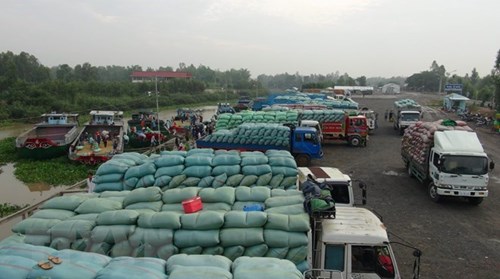The two sides have strengthened coordination in preventing smuggling and trade frauds, as well as facilitating efficient customs clearance for goods, people’s travelling, and transportation.
They also coordinated well in the protection of intellectual property rights, border management, exchange of data, and capacity building for customs officers.
    |
 |
|
Goods exported through Lao Cai international border gate |
Nguyen Viet Quang, who is in charge of Lao Cai’s customs department, said the Chinese side have enabled local farm produce exporters to transport their goods by car across the border, thus helping promote the export turnover of Vietnamese agricultural products through the Lao Cai international border gate.
Dragon fruit and lychee exports were reported as having increased the most amongst Vietnamese agricultural products entering China via the Lao Cai international border gate since the beginning of this year.
As of June 13, Vietnam exported 284,516 tons of dragon fruits worth 185.75 million USD, up 688 percent against the same period last year.
The country shipped 7,896 tons of lychees to China as of June 14, earning 4.15 million USD in revenue, a year-on-year rise of 162 percent.
High growth was also seen in watermelon exports, reaching 12,395 tons, worth over 4.7 million USD; 16,666 tons of pepper, worth 46.72 million USD; and 10,973 tons of other fruits and vegetables, worth 19.65 million USD.
During the recent 12th annual talks between the customs departments of Vietnamese localities and China’s Kunming, the two sides agreed to expand cooperation in a more extensive and intensive manner.
They agreed to implement a joint action plan on anti-smuggling in the border area between customs of Vietnam’s Lao Cai, Dien Bien, and Ha Giang and China’s Kunming over the 2018-2019 period.
Added to this is the need to enhance mutual assistance in the inspection of trade fraud and customs violations across the shared border.
The two sides will quickly respond to assistance requests for key commodities, such as solid waste, ammunition, explosives, wild animals, automobiles, white sugar, and food, in addition to strengthening mutual support in inspecting customs valuation and commercial contracts in cases with special requirements.
Furthermore, Vietnamese and Chinese customs offices will implement cooperation in reforming methods of supervising customs management, making it easier to complete customs clearance procedures and exchange data on goods imported and exported via border gates.
Source: VNA